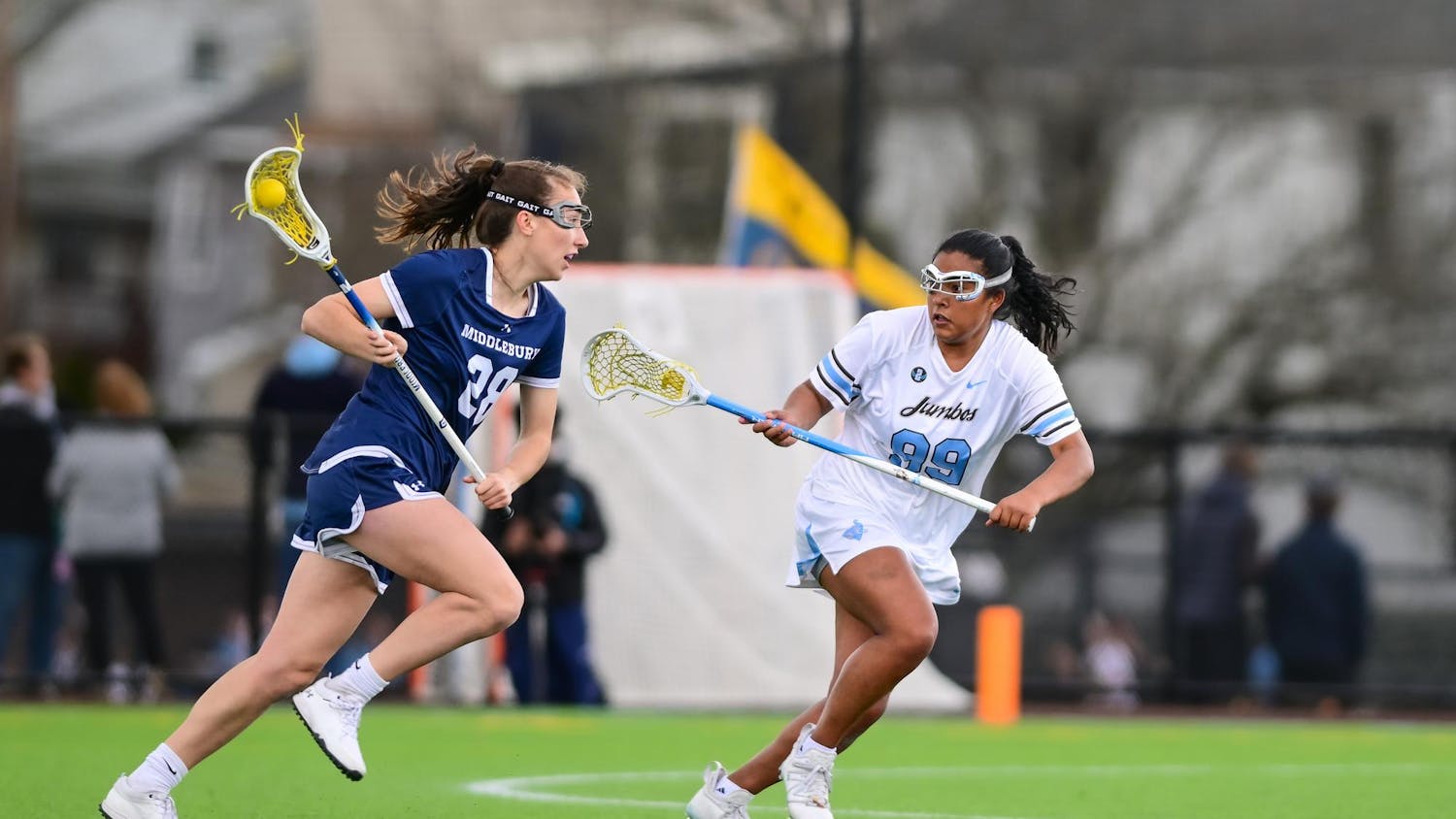At the end of the season, a football team is judged on wins and losses and usually nothing more. In that sense, Tufts 52-9 loss to Wesleyan last weekend will count just the same as a one-point loss. For the Jumbos, though, it was the manner in which they lost that is so frustrating.
I think its attention to detail, head coach Jay Civetti said when asked what his team needs to correct from the Wesleyan game. We need to tackle the football better, we need to be better [with our] assignments. The focus is the mentality of knowing your responsibilities and executing them.
Against the Cardinals, Tufts failed to establish a rhythm offensively or defensively, and after a Jumbos touchdown on the first drive of the game, Wesleyan took control and never looked back. In particular, Civetti noted that many of the opponents biggest plays came from Tufts mistakes.
We gave up too many yards and too many points based on missed tackles, and thats just not good enough, he said. And offensively, we need to get the ball moving. We need to prime the engine and get things started. One drive is great, but one drive isnt enough.
As this weeks practices began on Tuesday, Civetti put the focus squarely on this weekends game at Bates. He urged his players to give 100 percent on each drill in order to correct their mistakes, particularly on the mental side of the game.
Going into the game [at Wesleyan], the coaching was more than sufficient to get done what we needed to get done, [but] we made a lot of mental errors and communication errors, senior tri-captain offensive lineman Connor Glazier said. I felt like we missed a lot of assignments just because we werent letting each other know what we needed to do. Everything that went wrong in that game is fixable.
Part of the struggle against Wesleyan was that the Jumbos hurry-up, no-huddle offense failed to establish a tempo, which resulted in three quick three-and-outs after the first drive. That put Tufts defense on the field repeatedly with little rest, and Wesleyans high-octane offense built a nearly insurmountable lead in the first half.
Its a programmatic decision, Civetti said of the no-huddle offense. You live and die by it. Had we scored a lot of points, youd be saying it was a great decision. You have to be able to rally and get the ball back defensively, and when you have those missed tackles and missed assignments, the two [offense and defense] dont work.
Tufts must fix those errors and fix them fast, because Bates runs an explosive triple-option offense and a 3-5-3 stack defense that is designed to create confusion and mismatches.
Theyre one of the most well-coached teams in the league, Civetti said. Ive got all the respect in the world for [Bates head coach] Mark Harriman. Hes an amazing person and does a great job with his team. He has recruited great, tough kids, which has paid off for them the last couple of years.
Bates has increased its win total in each of the last three seasons, winning five games last year to earn Harriman co-NESCAC Coach of the Year honors. The Bobcats lost their first contest this season in a close game with Trinity and will be looking to get back on track against the Jumbos.
For Tufts, the focus in practice has been forgetting the Wesleyan game and continuing to improve and grow as a team.
We just have to be disciplined with our assignments. Weve faced [Bates] before, and discipline is the most important thing, Glazier said. Leadership is a huge factor on this team. We dont have too many older guys, [but] the younger guys are adapting pretty well, and were continuing to improve as a group.





